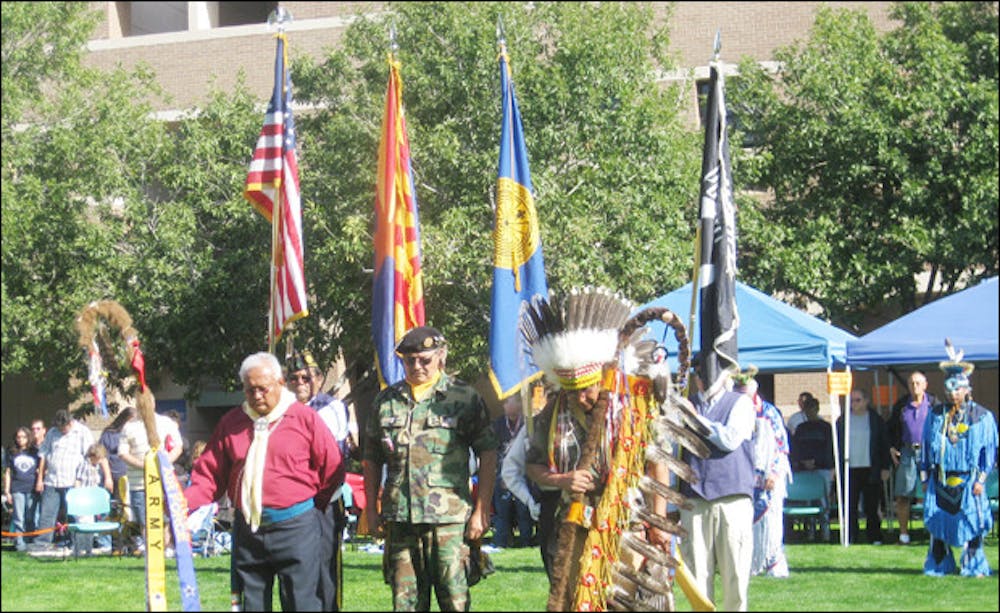As the drums beat louder and louder on the West campus Saturday afternoon, a procession of Native American veterans marched to the middle of a group of bystanders at a powwow celebrating their military service.
More than 300 community members attended the day-long event that included singing, eating and traditional music and dancing.
In Native American culture, there are two types of powwows. Dennis Eagleman, organizer of Saturday’s powwow, said competition powwows are more common, but traditional powwows are usually used to celebrate something, such as Saturday’s veteran event.
“Usually competition powwows are for dancers to earn money,” Eagleman said. “These [traditional powwows] are more to socialize and to remember our culture.”
ASU law student Sarah Cedarface and her family were among those who gathered to celebrate the veterans. Cedarface’s daughters, 9-year-old Grace and 7-year-old Mary Elias, have been dancing at powwows like Saturday’s event for years.
Cedarface, a member of the Oglala Sioux tribe from South Dakota, said she brings her daughters to powwows because she feels it’s important to pass along Native American traditions.
“If children are exposed to the culture, then the culture will grow,” she said as her daughters danced on the outside of the circle in purple and brown outfits, jingling with bells.
Cedarface said Native Americans have historically had a deep respect for servicemembers.
“Veterans are always first to enter [powwows],” Cedarface said. “There are also special songs to honor the veterans.”
Elementary education junior Demetria Morgan, who holds the title of Ms. Indian ASU, said she was moved by how much veterans have sacrificed for America.
“There are already very few Native Americans left, but there are still veterans fighting for our land,” Morgan said. “They’re still fighting for the land that they love. They all still have the mentality of warriors, and I’m very proud.”
ASU doctoral student of social work Paul Rock, a member of the Ojibwe tribe from Minnesota, a U.S. Army veteran and a singer in Preyin’ Eagle Singers, said before Europeans came to America, Native Americans would fight each other.
“Instead of killing, they would come and hit someone on the back of the head,” Rock said. “It was a way of saying ‘I could have done you in then, but I didn’t.’ It was more honorable to not take a life.”
As the drums were starting to die down at the end of the night, Rock said he was extremely honored to be a veteran, but people sometimes forget why veterans are important.
“America forgets who they owe their freedom to. It’s not football players, reality TV stars or millionaires. It’s veterans,” he said. “As Native Americans, we honor veterans every time we get together, to remember why we’re able to gather.”
Reach the reporter at sheydt@asu.edu.




